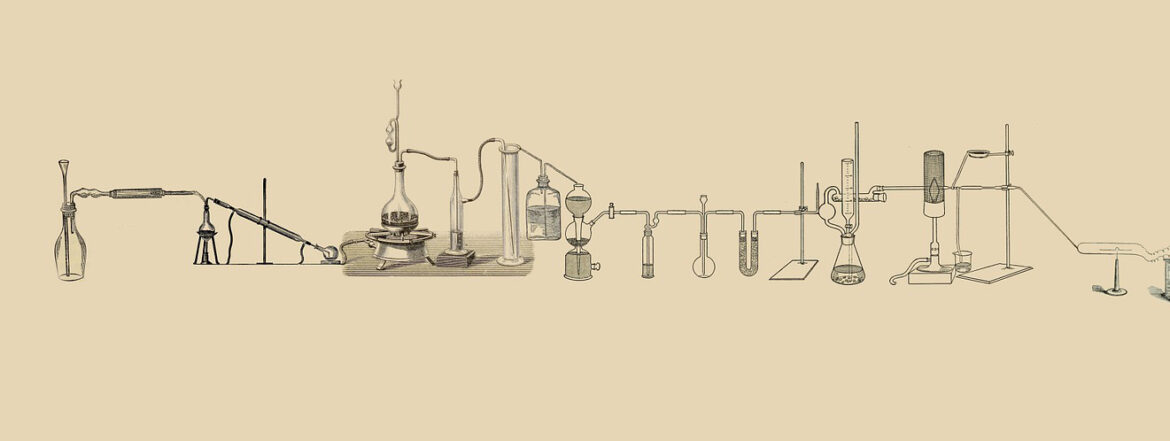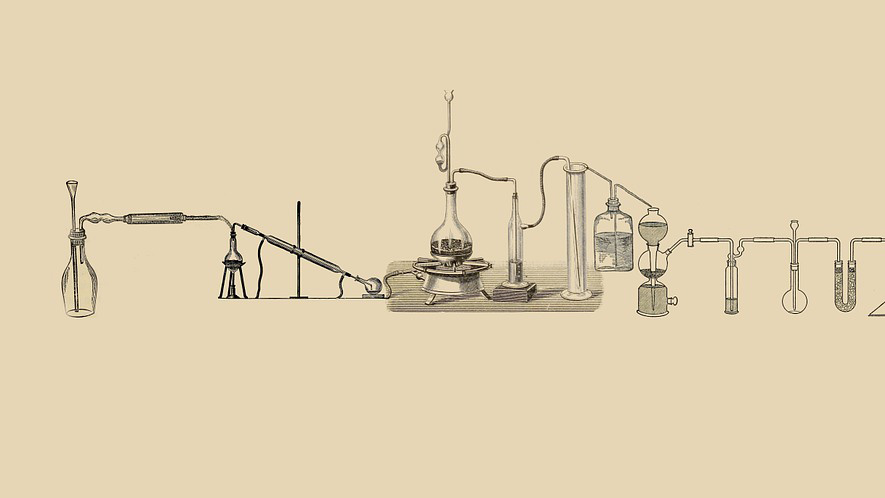Technohumanities: Exploratory Workshop on Experimentation
May 1, 2018
Southern Exposure
Topic Details
“If you want to be a productive researcher, you have to conduct your experiments in such a way that you can be surprised by the outcome, so that unexpected things can occur. This only happens if, on the one hand, experiments are precisely set up but, on the other hand, are complex enough to leave the door open for surprise.”
Experimentation, once the province of science, is no longer an unfamiliar term in the arts and humanities both as a method and as an object of study. Concomitant with the rise of digital technology, there has been a resurgence of interest in process-oriented and open-ended research methods such as visualization, mapping, simulation, and modeling, all of which share some processual overlap with experimentation. These and other new practices are changing the epistemological basis on which humanities research is conducted, and are helping to create new kinds of knowledge.
Experimentation, and its role in shaping humanistic thought, takes on a particularly urgent meaning at a time when ecological crises, media proliferation, resurgent authoritarian populism, and economic precarity combine to blur long-cherished distinctions between humans, and technologies. Algorithmic governance and lively nonhuman agents all force new imperatives upon humanist inquiry. Here, experimental engagements with the contemporary can offer generative imaginations of both creative and repressive futures.
As a collaborative practice, experimentation calls on humanists to develop new modes of research that are attuned to principles of community, dialogue, and cohabitation. In a moment when there is intense pressure on humanists to produce quantifiable knowledge in the form of clear “outcomes”, this studio calls on scholars and practitioners to reflect on experimentation as a method for critically addressing the instrumentalization of the humanities in the university and more generally. The studio will be a space for interdisciplinary, collaborative work committed both to the process of generating experimental knowledge-making and outcomes in the humanities. We encourage collaborations between humanists, artists, and scientists that combine modes of experimental practice to redefine the shape and outcomes of knowledge.
Areas of inquiry include:
- Historical legacies of experimentation as an expression of creativity as well as power
- Experimental dialogues between the human, social, and natural sciences
- Experiments as sites of collaboration, collusion, and deception
- The democratic experiment and the future of collectivity
- Experimentation as work and play
- Experimental thinking as epistemology and/or cultural value system
- Role of experimentation in the blurring of distinctions between human, machine, and animal; animalization of human life/anthropomorphizing of the animal and machinic, technologics
- Dialogues between experiments in humanistic and artistic practices.
The Event
On May 1st at Southern Exposure in San Francisco, UCHRI hosted an exploratory all-day workshop on the topic of experimentation and the humanities. The aim of this workshop was to explore innovative agendas, develop partnerships, and formulate ideas for new methodologies that advance multidisciplinary, multimodal examinations of the topic. The workshop looked broadly at the topic of experimentation to include innovative practices; the “experimental” in both historical and contemporary frames; explorations of trial, error, and the scientific method; and cross-disciplinary dialectics.
In an effort to build a workshop faithful to its title—Experimentation—we devised an agenda that diverged from the workshop norm. Each session—PARAMETER, COMPOSITE, and IMPLOSION—was designed specifically to help us unpack this theme from the perspective of method.
The exploratory workshop brought together UC faculty and graduate students, journalists, artists, and other public scholars for one day of networking, sharing research ideas, and to begin thinking about building an interdisciplinary research team on a new topic. Promising research collaborations that emerge from this workshop will be considered for a longer-term research working group as part of UCHRI’s Horizon of the Humanities Initiative in order to conduct a year-long Experimentation Studio. Studio groups will design interdisciplinary projects as well as one public program in conjunction with their project, which the team will carry out with administrative support from their UCHRI collaboration.
Session One: PARAMETER
Session Two: COMPOSITE
Session Three: IMPLOSION
Participants
Karen Barad “Experimentation is the specific material practice of imagination in action”
Karen Barad is professor of feminist studies, philosophy, and history of consciousness at UC Santa Cruz. With a doctorate in quantum field theory, Barad is the author of Meeting the Universe Halfway: Quantum Physics and the Entanglement of Matter and Meaning, and numerous articles drawing from the fields of physics, philosophy, science studies, poststructuralist theory, deconstruction, and feminist and queer theory.
Liat Berdugo “Experimentation is a bland word until it is embodied with action”
Liat Berdugo is an artist, writer, and curator whose work—which focuses on embodiment and digitality, archive theory, and new–interweaves video, writing, performance, and programming to form a considerate and critical lens on digital culture. She is an assistant professor of art + architecture at the University of San Francisco.
Lisa Cartwright “Experimentation is speculative”
Lisa Cartwright is professor of visual arts at UC San Diego, where she is also appointed in the Communication and Science Studies Program and affiliated with Critical Gender Studies. A founding editor of Catalyst: Feminism, Theory, Technoscience, she is co-author of Practices of Looking: An Introduction to Visual Culture (Oxford, Third Edition 2017) and author of Screening the Body: Tracing Medicine’s Visual Culture (Minnesota) and Moral Spectatorship (Duke 2008).
Coleman Dobson “Experimentation is animagus to totalization”
Coleman Dobson is a Caltech fellow mathematician, with a MS in mathematics and physics and doctoral interests in M-theory Kac Moody Algebras, Looking Glass Mathematics. She has given over 100 presentations on higher mathematics and is currently a mathematics lecturer at UC Los Angeles, CSU Los Angeles, and Art Center College of Design.
Maria Faini “Experimentation interrupts time”
In December of 2017, Maria completed her PhD in comparative ethnic studies and critical theory at UC Berkeley. She is currently a postdoctoral scholar for UC Berkeley’s Center for Race and Gender and working on a book titled The Art of Moral Injury: Decolonizing the Military Subject through Artisanal Destruction.
Gary Fox “Experimentation is a codified practice which authorizes the new”
Gary Fox is a PhD candidate in architectural history at UC Los Angeles. His dissertation considers a history of human subjects research and spatial simulation as techniques for architectural-psychological knowledge-production in the period from the late 1950s to the early 1980s. Gary currently teaches courses in architectural history and theory at USC and UC Los Angeles.
Rosa-Linda Fregoso “Experimentation is liberation”
Rosa-Linda Fregoso writes on human rights, feminicide, gender/ racial justice and cultural politics in the Américas, and works as expert witness for gender asylum cases. Professor emerita of Latin American & Latino studies at UC Santa Cruz, she was the 2014 recipient of the ASA’s Angela Y. Davis Prize for Public Scholarship in American Studies.
Melody Jue “Experimentation can estrange the normative conditions of human perception”
Melody Jue is assistant professor in English at UC Santa Barbara. Drawing on the experience of becoming a scuba diver, her monograph Wild Blue Media: Thinking Through Seawater (forthcoming with Duke Press) aims to develop a theory of mediation specific to the ocean environment.
Simon Penny “Experimentation is fundamental because, as Andy Pickering put it: performance is the ground from which knowledge emerges and to which it returns”
Simon Penny is an Australian artist, researcher, scholar and teacher whose work focuses on the intersection between electronic/digital systems and embodied and materially engaged practices. He designed and ran the Arts Computation Engineering (ACE) interdisciplinary graduate program at UC Irvine 2003–2012. His new book is Making Sense: Cognition, Computing, Art and Embodiment. MIT Press, 2017.
Dorothy Santos “Experimentation posits a different, alternative reality”
Dorothy R. Santos is a writer, editor, and curator. She holds Bachelor’s degrees in Philosophy and Psychology from the University of San Francisco and received her MA in visual and critical studies at the California College of the Arts. She is a PhD student in film and digital media at UC Santa Cruz. She serves as a co-curator for REFRESH and works as the Program Manager for the Processing Foundation.
Gabi Schaffzin “Experimentation risks normalizing”
Gabi Schaffzin is pursuing a PhD in art history, theory, and criticism with an art practice concentration at UC San Diego. His work focuses on the designed representation of measured pain in a medical, laboratory, and consumer context, especially as it stems from a Cold War era turn towards the quantifiable and classifiable.
Avery Trufelman “Experimentation is a form of discomfort”
Avery Trufelman has been making stories about architecture and design at 99% Invisible for the past four years, covering everything from garbage trucks in Taipei to swimming pools in Helsinki.
Elia Vargas “Experimentation illuminates the expressive potential of a practice/process”
Elia Vargas is an Oakland-based artist and scholar working across multiple mediums. He is co-founder of the Living Room Light Exchange; board member of Soundwave; and a PhD student in film and digital media at UC Santa Cruz. He is currently interested in refiguring the mythology of crude oil as media.
Kalindi Vora “Experimentation is a way to move at the limits of what is known towards the politics of what needs to be known”
Kalindi Vora (UC Davis) is author of Life Support: Biocapital and the New History of Outsourced Labor (2015); and Surrogate Humanity: Technology and the Racial Politics of Technological Futures (forthcoming DUP 2019), co-authored with Neda Atanasoski. She will convene the UCHRI residential research group: “Lab in Residence: Tinkering with Feminist and Social Justice Science Methods” (Fall 2018).
Jiayi Young “Experimentation drives discovery”
Jiayi Young is an assistant professor of design at UC Davis. She works in the emergent and experimental field of digital media to create data-driven large-scale public participatory installations and social interventions that engage the rethinking of the present-day human experience. Young has exhibited nationally and internationally.



